Care for oily hair
The scalp is an extension of our skin, and therefore also contains sebaceous glands in the hair follicles. These glands release an oil-like substance called sebum, which helps keep the skin and hair nourished and moisturized.
However, excessive sebum production can make hair greasy. It can also increase the risk of scalp problems such as itching and dandruff.
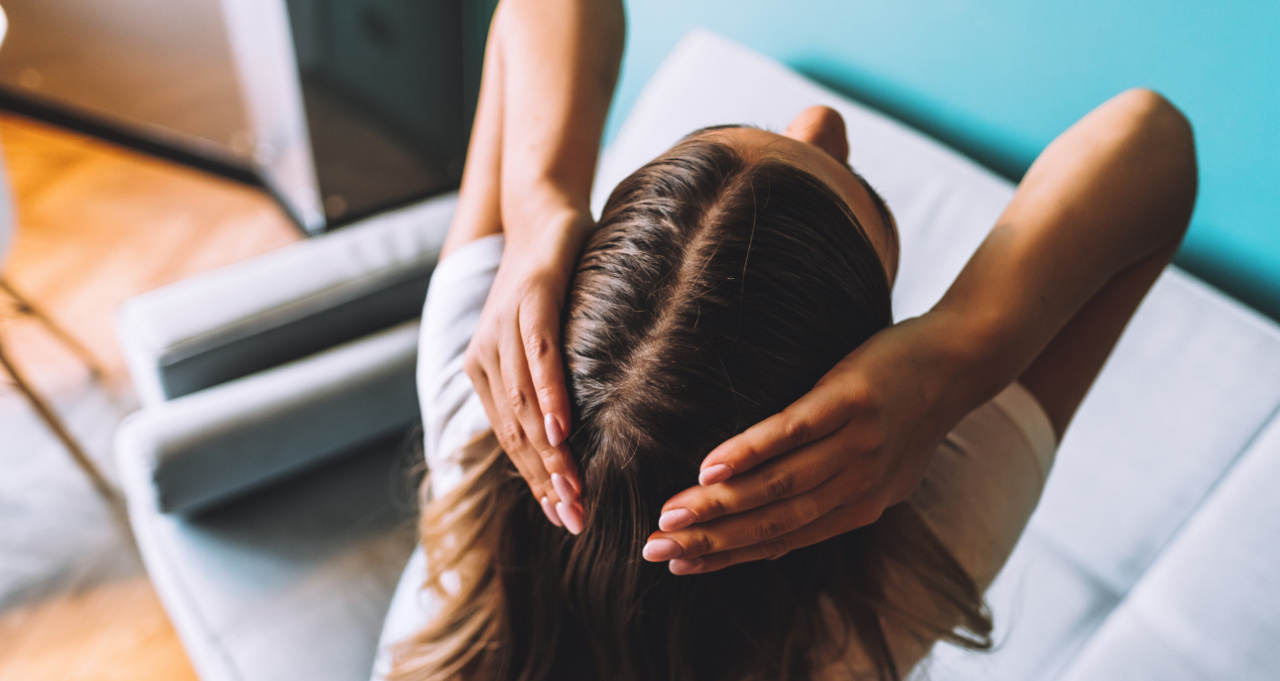
The causes of oily hair:
The most common cause of oily hair is excessive sebum secretion by the sebaceous glands on the scalp. Various other factors can also contribute to oily hair, including:
- Moisture: It is common for hair to become greasy in hot, humid weather, even after shampooing
- Hormonal fluctuations: Hormonal changes associated with menopause and puberty can overload the sebaceous glands, causing oily hair.
- Poor hygiene: Not washing hair regularly and using unwashed pillowcases, sheets, hair accessories or hair tools can cause scalp buildup and can turn hair greasy.
- Excessive use of hair products: Daily hair care or using too many hair serums and other hair products can make your hair oily.
- Excessive oiling: While oiling the hair is recommended to improve hair health and growth, excessive oiling can clog scalp pores and make hair sticky or greasy. In addition, it increases the chances of developing dandruff.
- Stress: Uncontrolled prolonged stress can trigger overproduction of sebum by the sebaceous glands, making hair greasy.
Home remedies for oily hair:
Oily hair is generally a mild problem that can be solved with home remedies made from natural ingredients.
You can try the following home remedies to help remove excess oil and regulate sebaceous gland activity to some extent. They can also help improve hair health and texture.
1. Use lemon-based masks

Lemons are high in vitamin C and acidic in nature, which can help remove excess oil from the hair. They can also regulate the pH of the scalp, as scalp pH above 5.5 has been shown to be associated with irritation.
You can use lemon juice with egg whites to retain moisture and prevent dryness.
Directions for use:
- Mix 1-2 tablespoons of yogurt with 1-2 teaspoons of lemon juice.
- Apply the mask to your hair and put on a cap.
- Wash off the mask after 20 minutes.
- Repeat this remedy every week.
2. Prepare a scrub for the scalp
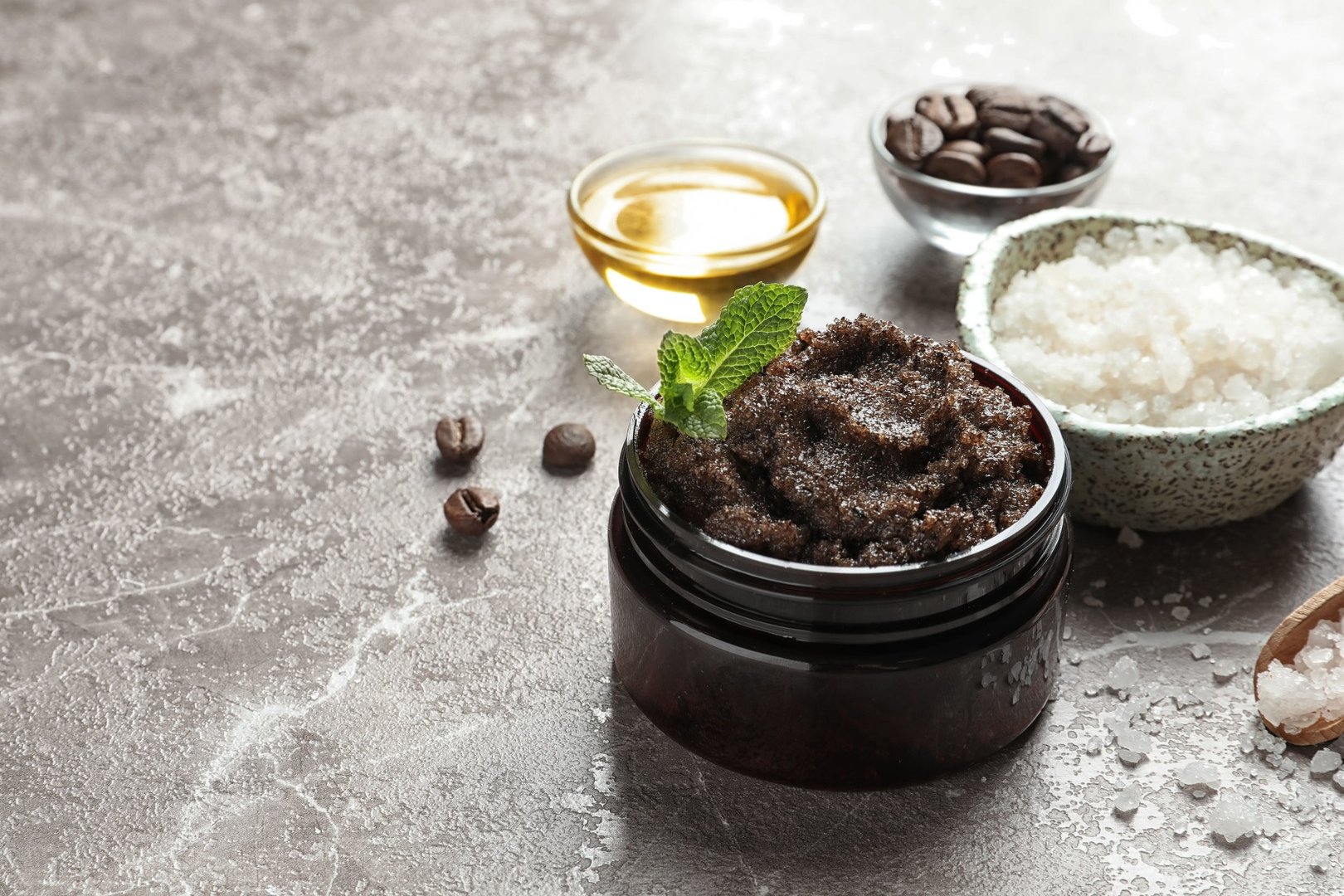
Scalp scrubs exfoliate the scalp, unclog scalp pores, prevent scalp buildup and remove dead skin cells and dirt. They also increase hair growth.
Directions for use:
- Mix 2 tablespoons each of ground coffee and coarsely crushed walnuts.
- Make a thick paste by adding water.
- Wash your hair with shampoo, then massage this mixture into your scalp with your fingers.
- Rinse your hair.
3. Use apple cider vinegar
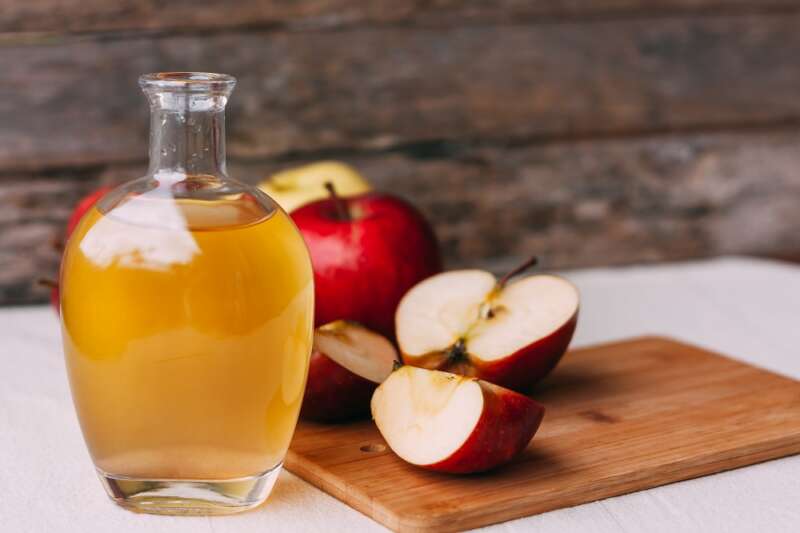
The acidic nature of apple cider vinegar helps regulate the pH of the scalp, and consequently reduces oil production. It also prevents oil buildup on the scalp and makes hair smooth.
Directions for use:
- Dilute 2-3 teaspoons of apple cider vinegar in 1 cup of water.
- Use the mixture to rinse your hair.
- Wash your hair with shampoo after a few minutes
4. Make a hair mask with egg yolk
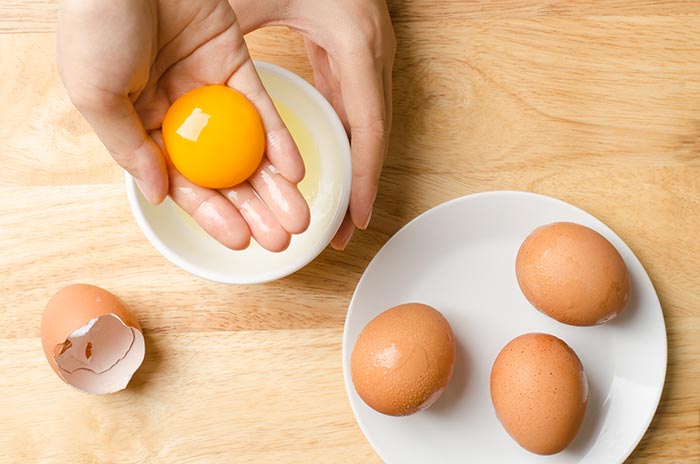
Egg yolks are rich in sulfur, which helps deal with oiliness and dandruff. Egg yolks also contain lecithin and protein, which help hair to be strong, shiny and smooth.
Directions for use:
- Separate the yolks of two eggs and mix in 1 teaspoon of lemon juice.
- Apply the mixture to the hair.
- Wash off after 15 minutes with lukewarm water.
Changes in lifestyle

The following tips and products can help you better deal with oily hair:
- Wash your hair often: It is important to wash and cleanse your scalp regularly to remove dirt, product buildup and impurities that may have settled on your scalp. If you don't wash your hair for a long time, the buildup can block pores and hair follicles, leading to problems such as oiliness, acne and dandruff.
- Use scalp cleansing shampoos: Include scalp cleansing shampoos in your hair care routine. These products remove dirt and dust from the scalp and protect the hair shaft from damage.
- Improve your diet: Consume foods rich in omega-3 fatty acids, protein and vitamin A to maintain hair health.
- Use silicone-free products: Silicone quickly builds up in the scalp, clogging hair follicles, increasing oil production and making hair look lifeless and grimy. So make sure you use only silicone-free products.
- Try dry shampoo: Dry shampoo is a quick solution for oily hair, as it absorbs excess oil from the roots.
- Massage your scalp: Massaging your scalp with oils once in a while ensures healthy hair growth. It also prevents dryness of the scalp, which can stimulate excessive oil production.
Prevention tips:
- Avoid conditioning the scalp: Do not apply conditioner to the scalp, as this may overcondition it. Use conditioner only on the length of the hair.
- Manage stress: Managing stress through yoga, meditation and other techniques helps prevent hormonal imbalances that can cause oil overproduction.
- Clean hair tools: Unclean hair tools, such as hair brushes, can transfer dirt to the scalp. To prevent dirt buildup, clean your hair brushes at least once a month.
- Avoid using heavy products: Refrain from using styling products such as waxes, heavy oils and creams, especially on the scalp, as they can cause oiliness.
- Avoid washing your hair too often: Although it is necessary to shampoo and cleanse your hair, overdoing it can also cause oily hair. Wash your hair with shampoo 2-3 times a week, and if you feel excessive buildup of sweat after a workout, quickly rinse you
Complications associated with oily scalp:
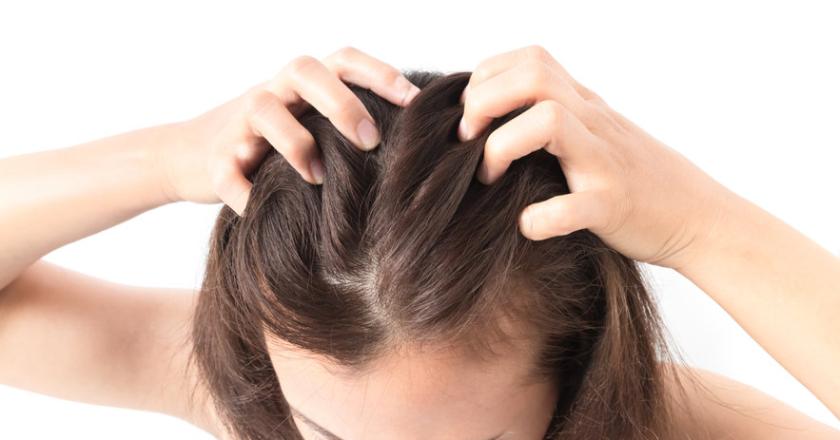
Failure to take care of oily hair can lead to the following problems:
- Seborrheic dermatitis: This chronic problem is a type of dermatitis that causes dandruff and itching.
- Folliculitis: This is a skin condition that presents as pimples or nodules on the scalp and is caused by bacterial or fungal infections that cause inflammation in the hair follicles.
- Acne on the forehead: oil from the scalp and hair strands can affect the facial skin and clog pores, leading to acne.


